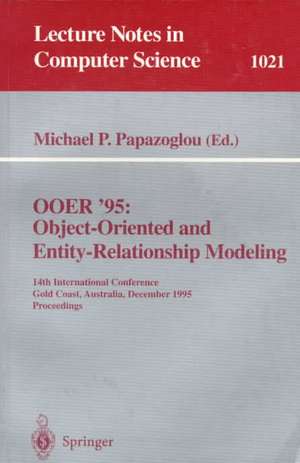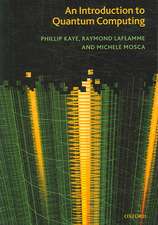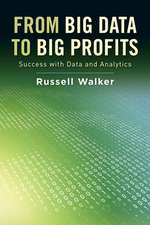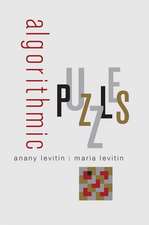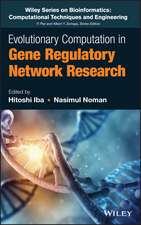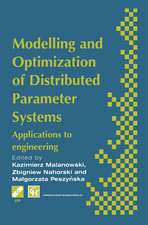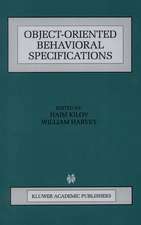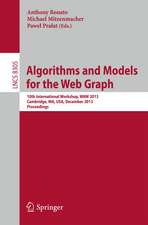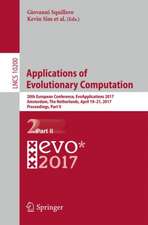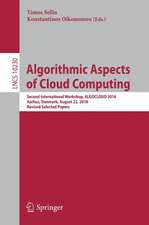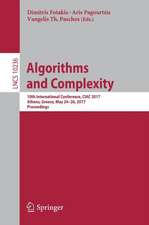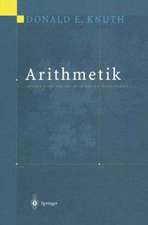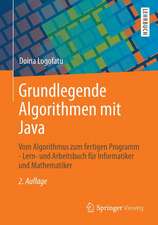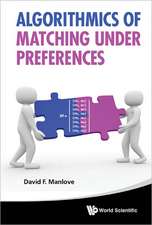OOER '95 Object-Oriented and Entity-Relationship Modeling: 14th International Conference, Gold Coast, Australia, December 13 - 15, 1995. Proceedings: Lecture Notes in Computer Science, cartea 1021
Editat de Michael Papazoglouen Limba Engleză Paperback – 23 noi 1995
The 36 papers presented together with an invited presentation by Gio Wiederhold were selected from a total of 120 submissions. The papers are organized in sections on object design and modelling, models and languages, reverse engineering and schema transformation, behavioral modelling, non-traditional modelling, theoretical foundations, business re-engineering, integrated approaches, cooperative work modelling, temporal data modelling, federated systems design, and industrial stream papers
Din seria Lecture Notes in Computer Science
- 20%
 Preț: 1061.55 lei
Preț: 1061.55 lei - 20%
 Preț: 307.71 lei
Preț: 307.71 lei - 20%
 Preț: 438.69 lei
Preț: 438.69 lei - 20%
 Preț: 579.30 lei
Preț: 579.30 lei -
 Preț: 410.88 lei
Preț: 410.88 lei - 17%
 Preț: 427.22 lei
Preț: 427.22 lei - 20%
 Preț: 596.46 lei
Preț: 596.46 lei - 15%
 Preț: 448.04 lei
Preț: 448.04 lei - 20%
 Preț: 353.50 lei
Preț: 353.50 lei -
 Preț: 389.49 lei
Preț: 389.49 lei - 20%
 Preț: 309.90 lei
Preț: 309.90 lei - 20%
 Preț: 645.28 lei
Preț: 645.28 lei - 20%
 Preț: 763.23 lei
Preț: 763.23 lei - 15%
 Preț: 580.46 lei
Preț: 580.46 lei - 20%
 Preț: 310.28 lei
Preț: 310.28 lei - 20%
 Preț: 655.02 lei
Preț: 655.02 lei - 20%
 Preț: 1183.14 lei
Preț: 1183.14 lei - 20%
 Preț: 340.32 lei
Preț: 340.32 lei -
 Preț: 449.57 lei
Preț: 449.57 lei - 20%
 Preț: 591.51 lei
Preț: 591.51 lei - 18%
 Preț: 938.83 lei
Preț: 938.83 lei - 20%
 Preț: 337.00 lei
Preț: 337.00 lei - 20%
 Preț: 649.50 lei
Preț: 649.50 lei - 20%
 Preț: 607.40 lei
Preț: 607.40 lei - 20%
 Preț: 1414.79 lei
Preț: 1414.79 lei - 20%
 Preț: 1024.44 lei
Preț: 1024.44 lei - 20%
 Preț: 583.40 lei
Preț: 583.40 lei - 20%
 Preț: 453.32 lei
Preț: 453.32 lei - 20%
 Preț: 575.49 lei
Preț: 575.49 lei - 20%
 Preț: 1075.26 lei
Preț: 1075.26 lei - 20%
 Preț: 585.88 lei
Preț: 585.88 lei - 20%
 Preț: 825.93 lei
Preț: 825.93 lei - 17%
 Preț: 360.20 lei
Preț: 360.20 lei - 20%
 Preț: 763.23 lei
Preț: 763.23 lei - 20%
 Preț: 340.32 lei
Preț: 340.32 lei - 20%
 Preț: 504.58 lei
Preț: 504.58 lei - 20%
 Preț: 369.13 lei
Preț: 369.13 lei - 20%
 Preț: 580.93 lei
Preț: 580.93 lei - 20%
 Preț: 343.62 lei
Preț: 343.62 lei - 20%
 Preț: 350.21 lei
Preț: 350.21 lei - 20%
 Preț: 583.40 lei
Preț: 583.40 lei - 20%
 Preț: 583.40 lei
Preț: 583.40 lei - 15%
 Preț: 438.59 lei
Preț: 438.59 lei - 20%
 Preț: 341.95 lei
Preț: 341.95 lei - 20%
 Preț: 238.01 lei
Preț: 238.01 lei - 20%
 Preț: 538.30 lei
Preț: 538.30 lei
Preț: 357.30 lei
Preț vechi: 446.63 lei
-20% Nou
Puncte Express: 536
Preț estimativ în valută:
68.38€ • 71.12$ • 56.45£
68.38€ • 71.12$ • 56.45£
Carte tipărită la comandă
Livrare economică 14-28 aprilie
Preluare comenzi: 021 569.72.76
Specificații
ISBN-13: 9783540606727
ISBN-10: 3540606726
Pagini: 476
Ilustrații: XVII, 459 p.
Dimensiuni: 155 x 235 x 25 mm
Greutate: 1.1 kg
Ediția:1995
Editura: Springer Berlin, Heidelberg
Colecția Springer
Seria Lecture Notes in Computer Science
Locul publicării:Berlin, Heidelberg, Germany
ISBN-10: 3540606726
Pagini: 476
Ilustrații: XVII, 459 p.
Dimensiuni: 155 x 235 x 25 mm
Greutate: 1.1 kg
Ediția:1995
Editura: Springer Berlin, Heidelberg
Colecția Springer
Seria Lecture Notes in Computer Science
Locul publicării:Berlin, Heidelberg, Germany
Public țintă
ResearchCuprins
Modeling and system maintenance.- Adaptive schema design and evaluation in an object-oriented information system.- Assertion of consistency within a complex object database using a relationship construct.- A cryptographic mechanism for object-instance-based authorization in object-oriented database systems.- Unifying modeling and programming through an active, object-oriented, model-equivalent programming language.- A declarative query approach to object identification.- Versatile querying facilities for a dynamic object clustering model.- Reverse engineering of relational database applications.- A rigorous approach to schema restructuring.- Managing schema changes in object-relationship databases.- Behavioural constraints: Why using events instead of states.- Behavior consistent extension of object life cycles.- Color-X Event Model: Integrated specification of the dynamics of individual objects.- Database design with behavior and views using parameterized Petri nets.- SEER: Security enhanced entity-relationship model for secure relational databases.- Neural network technology to support view integration.- Database schema transformation and optimization.- Mapping an extended entity-relationship schema into a schema of complex objects.- Binary representation of ternary relationships in ER conceptual modeling.- Variable sets and functions framework for conceptual modeling: Integrating ER and OO via sketches with dynamic markers.- A logic framework for a semantics of object oriented data modelling.- Object-oriented meta modelling.- A conceptual model for business re-engineering methods and tools.- Data model evolution as a basis of business process management.- Reengineering processes in public administrations.- Uniqueness conditions for ER representations.- Rapid prototyping: An integrated CASE based approach.- Integrating and supporting Entity Relationship and Object Role Models.- From object specification towards agent design.- Conceptual modeling of workflows.- An object oriented approach for CSCW system design.- Semantics of time-varying attributes and their use for temporal database design.- Handling change management using temporal active repositories.- A graphical query language for temporal databases.- Managing object identity in federated database systems.- Management of inconsistent information in federated systems.- Resolving structural conflicts in the integration of Entity-Relationship schemas.- Use and control of data models: A repository approach.- The seven habits of highly effective data modellers (and object modellers?).- Object responsibility categories in support of top-down object discovery.- Denormalisation as an OO extension.- Development of a financial markets analytical product: A MOSES casestudy.- The practice of nuclear integrated design and engineering database establishment using object-oriented DBMS.- Application of “consistent dependency” to corporate and project information models.- The use of agglomerative categorisation to build a conceptual view of statistical data.
